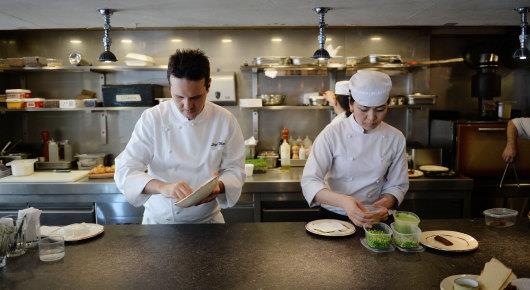Astana conference tackles market access for small-scale food producers

Seventy percent of food worldwide is produced by smallholders, including family farms and private households. Connecting those small producers to processing facilities and markets can be a challenge but it is possible, as an international conference in Astana last week made clear.
In Kazakhstan, the country’s 1.6 million private households and 175,000 private farms are playing a crucial role in ensuring national food security: about half of all food is produced by smallholders, 70 percent in the case of animal products. To support the efforts of national governments in Central Asia to link up smallholders with processors and markets, FAO in Kazakhstan and the Russian Federation held an International Conference on “Development of Inclusive Agrifood Chains,” on 20 July in Astana, presenting the Russian and Kazakh experiences.
Participants from Kazakhstan, Kyrgyzstan, Tajikistan, and Uzbekistan, representing farmers and their associations, Ministries of agriculture, state-owned companies, the agrifood and trade sectors, academia, and non-governmental organizations, actively participated in the full day debate.
“Smallholder farming and rural livelihoods in general are important dimensions of food systems development in Central Asia,” said FAO senior economist David Neven, who specializes in sustainable food chains. “Involving smallholder producers in rapidly changing and increasingly urban food markets requires innovative strategies that focus not only on upgrading technologies, but perhaps even more importantly, on upgrading linkages. It is of essential importance to have improved alignment between the policies and strategies of the various ministries that impact the food system (agriculture, economics, trade, finance, development), and between the public and private sectors.”
Successful examples from Russia and Kazakhstan of smallholders being included in agrifood chains were presented at the Conference. Voronezh City Market, “Mark i Lev” restaurant, Farmer’s Cooperative LavkaLavka, Cocco Bello project, Contract Producing Association, the “Fеrmer.ru” web portal, “Angela” private farm, and “Natije” milk processing company told their stories.
“We in the Voronezh Regional Government realize that the creation and development of inclusive value chains is not only a factor in agriculture development in general, but also a precondition for further development of small and medium farms,” said Dmitriy Maslov, head of the Voronezh Regional Department of Entrepreneurship and Trade. Maslov presented the experience of the Voronezh city market. With its infrastructure, small-scale processing facilities, and a flexible price policy, the market gives wide opportunities to local farmers to sell their products.
Inspiring business examples – like the producer who started from a single cow and grew into a mid-sized enterprise supplying dairy products to high-end retailers – were presented by Nelli Salikhanova, founder of “Angela” farm in Kazakhstan’s Almaty region.
“Food quality is at the heart of our activity so we invested a lot into meeting the stringent demands of HACCP and ISO to build the trust of consumers and traders,” said Salikhanova. “In addition, we are doing a lot to improve animal breeds and sanitation conditions at our farm, create jobs for local villagers and invest in improving their working conditions.”
“Agrifood chain development is very important for Kazakhstan so we are thankful to FAO for raising this issue today,” said Rakhim Oshakbayev, Director of the “Talap” Center for Applied Research. “It is also a positive trend that the Government of Kazakhstan is coming to understand the crucial role played by private and individual farms in food supply.”
“Smallholders are at the center of the agrifood system in many countries, playing an important role in ensuring food security and nutrition both today and in the future,” said Kairat Nazhmidenov who heads FAO’s Partnership and Liaison Office in Kazakhstan. “Yet, a significant part of the output of smallholders never reaches processing enterprises and trade networks due to difficulties in accessing the country's markets. As a result, these people do not reap enough profit to invest in the modernization of their farms.
“FAO has initiated this dialogue with partners,” Nazhmidenov continued, “to contribute to the further development of inclusive agrifood value chains in the countries that participated in the Conference.”
In the frame of FAO participation at EXPO-2017, Conference participants also visited the World Exhibition “Future Energy,” currently under way in Kazakhstan, and received a warm welcome by government representatives at the exposition.
24 July 2017, Astana, Kazakhstan
